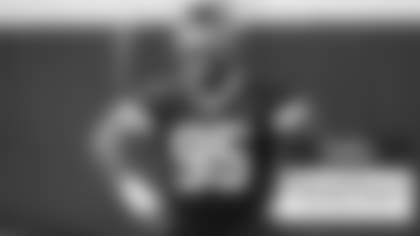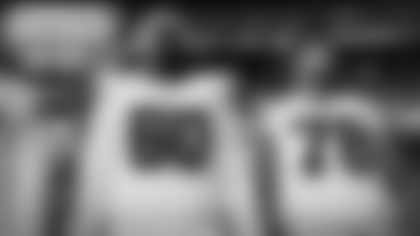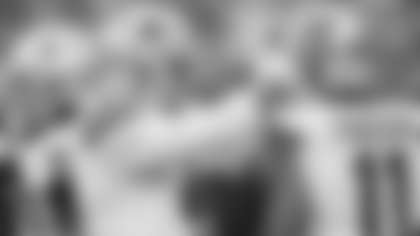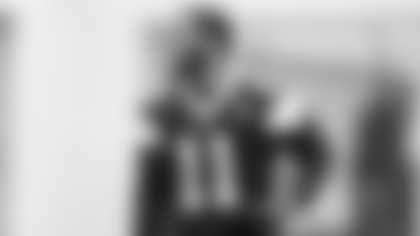opting to have his knee scoped to repair cartilage damage, much to Cowboys owner Jerry Jones' chagrin.
Before the season was completed, the Cowboys would start a franchise-high four guys: Carter, Wright, Clint Stoerner and Ryan Leaf. Not a one of the other three still is playing in the league - or anymore - and none in the NFL since 2004. Every one of them gone.
But here is Wright in the Super Bowl.
What the hell happened?
"See, either you have it or you don't. That's the way I look at it," said Wright, his now nine-year NFL career proof he had something. "And you know, I felt like I had it, and at the time the reason I had problems in Dallas was because I had a knee problem and that was one of the reasons why I went ahead and got it fixed, and I think it kind of upset Jerry a little bit that I went ahead and did that, but it benefited me in the long run because it prolonged my career.
"But (I found out) that was one of the reasons Jerry didn't go ahead and give me the reins because they felt like my knee wouldn't hold up for the long haul and that's why I decided to go ahead and get it fixed."
That is why the Cowboys told Wright they drafted Carter in the second round, so he always felt he was in a Catch 22 with the Cowboys. They were never going to rely on him because of his knee instability, but then when he decided to have his knee repaired during the middle of the season, really kicking off the quarterback carousel in 2001, the Cowboys then soured on his dedication to the team.
Wright was never again given a chance to compete for the starting job, and worse, was pushed further into the background when the Cowboys decided to sign Chad Hutchinson, the former Stanford quarterback who had spent four seasons pitching in the St. Louis Cardinals organization.
That despite this, according to Wright:
"I had a meeting with Jerry, and he said Quincy was our guy, but if Quincy were to get hurt that I was going to come in and be the starter, and at that particular time I was taking absolutely no reps so I had a meeting with him (in training camp) because I wanted them to give me a chance to go somewhere else. It was one of those things where I was in a Catch 22 (again), because when he said it to me (in training camp of '02) I was their insurance.
"Told me I was the best quarterback they had - told me this now. I was furious at what he said, but I didn't want to blackball myself . . . didn't want to get in a yelling match with him and let word spread around the league I was a problem."
Wright knew what was about to happen. The Cowboys weren't going to give up on Carter, a second-round pick in just his second year. And they certainly weren't going to give up on Hutchinson, whom they had just paid a $3 million signing bonus to sign as a free agent.
He would land in Baltimore for the remainder of the 2002 season, and thought he was getting his breakthrough chance in 2003. But here it began all over again. The Ravens drafted Kyle Boller with their first-round pick, the 19th overall pick.
"In Baltimore, when I met with Coach (Brian) Billick, in '03, when they just had drafted Kyle, I had performed well in the mini-camp, and when we went to training camp Coach Billick sat me down and said if I had to name a starter today you would be our starter based on playing," Wright recalls. "But being that we drafted a guy in the first round, Kyle Boller, and they had Chris Redman, who they had drafted before, that it wasn't going to be a fair competition. It was like, we like you and we want to do a long-term deal with you (the Ravens eventually did), but we want you to understand this is probably not going to be a fair competition.
"So at that particular point in time I realized where I was going to stand in most people's eyes, and unless there was a Kurt Warner (situation) or something like that, I understood that's what I was going to be."
He just about pulled off his own Kurt Warner after Boller went down with seven games remaining in that 2003 season. Wright started the final seven, resurrecting the struggling Ravens, going 5-2 in those starts - the first but a 9-6 loss - and getting the club into the playoffs at 10-6. And darn it, he had the





